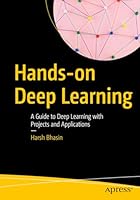
Entity Framework 4 in Action
- Length: 576 pages
- Edition: Pap/Psc
- Language: English
- Publisher: Manning Publications
- Publication Date: 2011-05-21
- ISBN-10: 1935182188
- ISBN-13: 9781935182184
- Sales Rank: #3428453 (See Top 100 Books)
Summary
Entity Framework 4 in Action is an example-rich tutorial for .NET developers with full coverage of EF 4 features. The book begins with a review of the core ideas behind the ORM model and shows through detailed examples and larger case studies how Entity Framework offers a smooth transition from a traditional ADO.NET approach.
About the Technology
Entity Framework builds on the ADO.NET persistence model and the language features of LINQ to create a powerful persistence mechanism that bridges the gap between relational databases and object-oriented languages.
About the Book
Entity Framework 4 in Action is an example-rich tutorial that helps .NET developers learn and master the subject. It begins by explaining object/relational mapping and then shows how you can easily transition to EF from ADO.NET. Through numerous focused examples and two larger case studies, the book unfolds the EF story in a clear, easy-to-follow style. Infrastructure and inner workings of EF are discussed when you need them to understand a particular feature.
This book is written for .NET developers. Knowledge of ADO.NET is helpful but not required.
Purchase of the print book comes with an offer of a free PDF, ePub, and Kindle eBook from Manning. Also available is all code from the book.
What’s Inside
- Full coverage of EF 4 features
- Layer separation, Data Layer, and Domain Model
- Best practices
Table of Contents
PART 1 REDEFINING YOUR DATA-ACCESS STRATEGY
- Data access reloaded: Entity Framework
- Getting started with Entity Framework
PART 2 GETTING STARTED WITH ENTITY FRAMEWORK
- Querying the object model: the basics
- Querying with LINQ to Entities
- Domain model mapping
- Understanding the entity lifecycle
- Persisting objects into the database
- Handling concurrency and transactions
PART 3 MASTERING ENTITY FRAMEWORK
- An alternative way of querying: Entity SQL
- Working with stored procedures
- Working with functions and views
- Exploring EDM metadata
- Customizing code and the designer

The Complete Engineering Manager: Build High-Performing Engineering Teams for Your Organization






